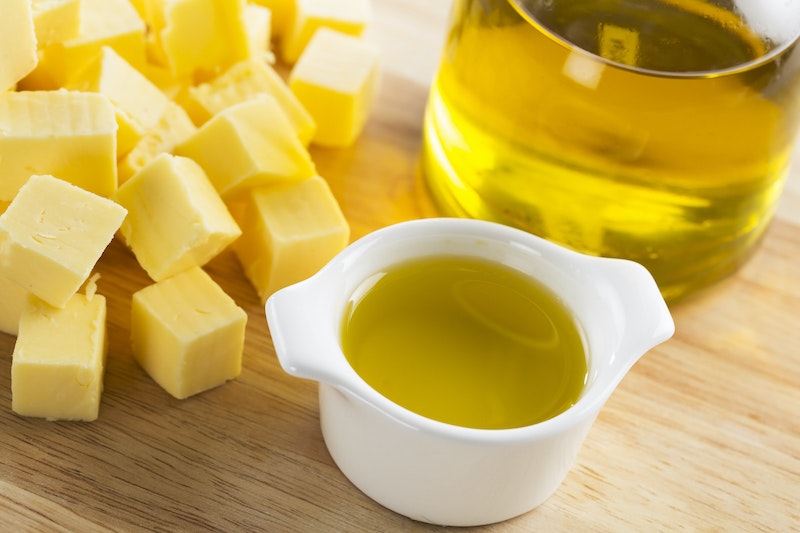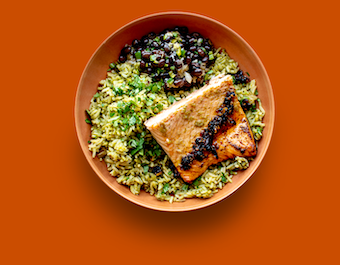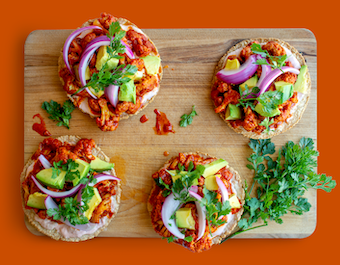Food is so much more than fuel. It’s a way to socialize, to make memories, to sample new cultures. What you eat can also have an incredible impact on your health — from inflammation to energy levels, bone health to brain power. Luckily, eating well doesn’t have to mean overhauling your diet entirely or abandoning all of your favorite food traditions. It can sometimes be as simple as swapping an old standard for a better option.
Here, we’ve rounded up a few relatively easy tweaks that can give your diet an instant upgrade. And, bonus: You can feel even more warm and fuzzy, knowing these small swaps also happen to be better for the planet. Considering that food accounts for about one-quarter of global greenhouse emissions, simple ways to lighten the environmental burden of what’s on our plates is a real win.
Feel-Good Swap: Less Beef, More Beans
Both beans and beef boast impressive amounts of protein, but beans also pack in plenty of good-for-you fiber, which can help lower blood sugar, cut cholesterol, and may even play a role in preventing colon cancer. Beef, on the other hand, is high in saturated fat, which has been linked to heart disease. In fact, a 2020 BMJ study found that replacing some red meat with plant proteins like beans or nuts lowered the risk of coronary heart disease by as much as 14%.
Bean burgers and tacos are popular options, but if skipping the beef feels too hard, “try going halfsies when cooking,” says Lainey Younkin, RD, a dietitian at Lainey Younkin Nutrition. Your taste buds won’t notice the difference, but your health will.
Planet Perk: Beef carries a heavy environmental burden (more so than chicken and pork, which don’t require as much land). When University of Minnesota researchers calculated the environmental impact of different types of food, they found that swapping a five-ounce steak for beans just once a week would save 331 kilograms of carbon dioxide every year. That’s the equivalent of lowering your home energy use by about 5% or using 36 fewer gallons of gasoline.
Feel-Good Swap: Less Processed Snacks, More Produce
Don’t worry: We’re not suggesting that you swear off granola bars, cheddar crackers or pretzels forever. But snacking makes up an increasingly big part of our diets — accounting for about one-quarter of our daily calories, according to the USDA. At the same time, the vast majority of Americans aren’t getting the recommended servings of fruits and veggies each day. Incorporating more fresh produce into our snack habits is an easy way to buck that trend, says Younkin.
If you tend to grab packaged snacks because they’re so portable, swap in sturdier produce, like bananas, apples and baby carrots, that won’t bruise or leak easily. Or invest in some small tupperware to open up your options even more — like juicy cubed watermelon, crisp cucumber slices and red pepper strips. And remember, the swap doesn’t have to happen at every single snack occasion to make a difference. Aim for adding one more serving of produce a day to your diet, and go from there.
Planet Perk: No question, a banana peel or bell pepper stem is easier waste to deal with than plastic wrappers and individual baggies (which may or may not be recyclable). If you want to ease the environmental impact of your snacks even further, aim to buy locally grown, in-season produce. When you shop locally, your food travels shorter distances, which lowers car exhaust emissions, and supports your local economy, says Tenley Burlingame, a registered dietitian nutritionist at the University of Vermont Medical Center.
Feel-Good Swap: Less Butter, More Olive Oil
Fat isn’t only essential to many recipes — it’s also essential to life, helping your body absorb certain vitamins, store energy and support cell growth. But not all fat is created equal. The American Heart Association recommends limiting saturated fat to just 5% or 6% of your daily calories (about 13 grams for a 2,000-calorie diet). That’s because saturated fat has been proven to raise your “bad” cholesterol and increase your risk for heart disease.
Butter is particularly problematic because it packs 7 grams of saturated fat into every tablespoon. Plant-based fats, such as olive oil and safflower oil, can be easy swaps in most cooking recipes and are typically free of saturated fat. Instead, the fats they contain are monounsaturated, which can be good for you when eaten in moderation. When researchers studied the diets of more than half a million people, for a 2021 BMC study, they found that those who consumed the most olive oil in their diets had a 5% lower risk of heart disease death and a 13% lower risk of death from diabetes than average. For those who ate the highest amounts of butter, the risk of death by heart disease jumped 10% and the risk of diabetes-related death rose 18%.
Planet Perk: Like beef, butter comes from cows, which have a huge carbon footprint. They produce a lot of methane and are also energy-, water- and land-intensive to raise. No surprise, then, that research suggests plant-based fats come out on top when sizing up environmental impact.






